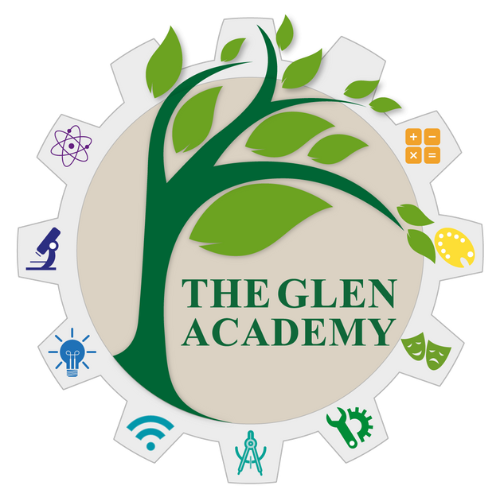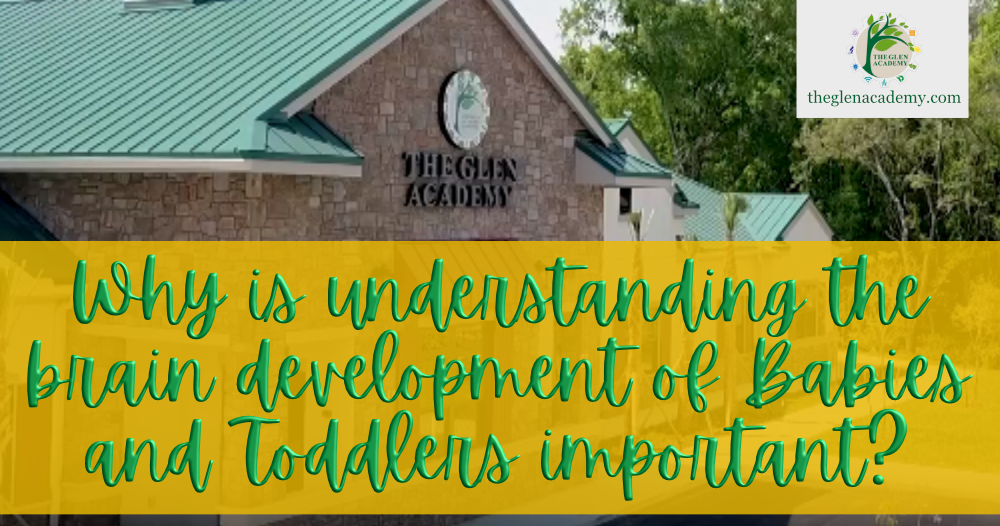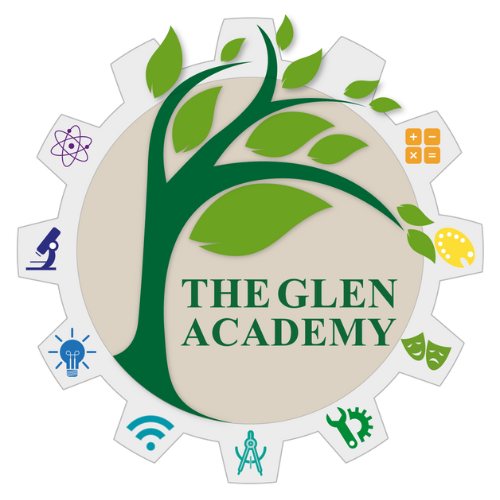Why is understanding the brain development of Babies and Toddlers important?
Why is understanding the brain development of Babies and Toddlers important? – Thanks for reading this blog article by The Glen Academy in Casselberry Florida. This blog article will help new parents understand brain development for babies and toddlers. This article was written to answer the most frequently asked questions we get asked about. Enjoy!

So let us embark on a fascinating journey to understand the intricate workings of a baby’s brain. From their very first moments, babies’ brains are rapidly developing, absorbing information like sponges. This pivotal phase lays the foundation for lifelong cognitive abilities and emotional well-being.
Table of Contents | Why is understanding the brain development of Babies and Toddlers important?
When does my child’s brain fully develop?
Brain development doesn’t stop until age 25, and the frontal lobes in charge of impulse control and planning are the last to develop. But, the most pivotal time for brain development is during ages zero to three. Then, from age three to five, the brain begins the process of pruning, where it starts to sort out information that it can use from unnecessary information. After age five, the brain determines what to focus on based on what a child has been exposed to in their earliest years, such as music or a second language.
Here are the Key Aspects of Brain Development in Babies:
- Sleep Impact: Quality sleep plays a crucial role in brain development, aiding in memory consolidation and overall cognitive function.
- Nutrition Impact: Providing a balanced diet rich in essential nutrients is vital for supporting healthy brain growth in infants.
Do you have any idea that taking part in intuitive exercises like perusing, narrating, and singing to children can improve their mental, emotional, and social well-being? It is true, that by establishing a supportive climate loaded up with affection and positive feelings from parents or trusted adult guardians, you can fundamentally improve your child’s brain development.
Do early childhood experiences impact brain development?
Researchers know that trauma can have severe impacts on a developing brain, including attention and focus issues, learning disabilities, low self-esteem, impaired social skills, and issues with sleep. They add that making efforts to prevent trauma, starting with the mother-child attachment at birth, and daycare programs that teach providers necessary caregiving skills (The Glen Academy stays updated with continuing education – schedule a tour of our facility today), can help to minimize potential traumas.
Ask when visiting potential daycare providers working with children. Ask them about their knowledge and experience in brain development and if they have experienced educated staff members including trauma-informed training is key. The brain is resilient at its earliest stages, and trauma-informed providers and families make a difference, especially when they access learning to achieve the competency to help children develop.
Why is understanding the intricacies of Baby Brain Development important?
When we dive into the complex world of baby brain development, it is important to understand that your baby’s tiny brain is working tirelessly to make sense of the new world around them. Each and every experience, whether a cuddle or a new sound, shapes their neural connections, paving the way for future learning and growth.
Therefore, your baby’s brain requires proper energy through sleep and nutrition as mentioned earlier. Create a safe and regular sleep schedule, avoid bed-sharing to prevent accidental injury or worse. By doing this, a parent or grandparent can create a good foundation for positive brain development.
Remember, clean water impacts growing brains, and children in some communities don’t always have access to clean and nutritious foods. Breastmilk or formula gives newborns and infants the adequate nutrients needed to grow. Going forward, opting to purchase for protein-rich foods, can ensure your baby’s boost in brain growth.
What are the best baby formulas for brain development
Here are some of our findings and recommendations from parents and staff at The Glen Academy. Keep in mind the baby formulas are simply recommendations for your family to consider that support brain development:
What Baby Formula Key Ingredients Should We look for to enhance our baby’s brain development?
- Milk Fat Globule Membrane (MFGM): Found in Enfamil Enspire and Enfamil NeuroPro Infant formulas, MFGM is a component of human milk that has been shown to support cognitive development and immune system function.
- Prebiotics: Prebiotics, such as GOS and FOS, are found in Happy Baby Organic Formula and Plum Organics Gentle Formula, and help support a healthy gut microbiome.
- DHA and ARA: These omega-3 fatty acids are found in many formulas, including Enfamil NeuroPro, Similac 360 Total Care, and Gerber Good Start Gentle. While research is mixed on their benefits for brain development, they are generally considered safe and may support brain and eye development as well.
- Iron: Iron is essential for brain development, and formulas like Similac 360 Total Care and Enfamil NeuroPro contain iron to support infant growth and development.
Recommended Baby Formulas for Brain Development:
- Enfamil NeuroPro Infant Formula: Contains MFGM, DHA, and ARA, and is designed to support brain development and immune system function.
- Enfamil Enspire Infant Formula: Also contains MFGM and is designed to support cognitive development and immune system function.
- Similac 360 Total Care Infant Formula: Contains DHA, ARA, and iron, and is designed to support brain and eye development.
- Happy Baby Organic Formula: Contains prebiotics GOS and FOS, and is an organic option for parents who prioritize natural ingredients.
- Plum Organics Gentle Formula: Also contains prebiotics GOS and FOS, and is an organic option for parents who prioritize natural ingredients.
Additional things to think about when feeding your baby a new formula:
- Consult with your pediatrician: Before choosing a formula, consult with your pediatrician to determine the best option for your baby’s individual needs.
- Read labels carefully: Check the ingredient list and nutrition label to ensure the formula meets your standards for brain development support.
- Consider your baby’s individual needs: If your baby has specific dietary needs or allergies, choose a formula that accommodates those needs.
Remember, breast milk is always the best source of nutrition for babies, but for those who cannot breastfeed or supplement with breast milk, these formulas can be a good option to support brain development.

More about Your Child’s Brain Development. | Why is understanding the brain development of Babies and Toddlers important?
- Infant Brain Development: The early years are crucial for brain growth, as babies rapidly acquire skills like language and motor abilities.
- Brain Development in Toddlers: As babies grow into toddlers, their brains undergo significant changes to support more advanced cognitive functions.
Have you at any point considered how straightforward exercises like playing Surprise are? Or to allow your toddler to play with building blocks? These activities, as simple as they are can significantly influence a child’s brain growth. These unrelated activities can improve the arrangement of brain processes, advancing mental turn of events, and critical thinking abilities in babies.
How can we improve a toddler’s brain development?
Observe your child to learn their interests, even if they are wildly different from your own. Then, nurture those interests by providing them with affordable and effective opportunities to learn more about them within their current settings and communities.
Regular interaction and encouragement to learn and try more new things matters, whether it’s exposure to foreign languages, creative arts, science exploration, or anything else that motivates your child to ask more questions and seek answers.
These experiences are not just beneficial for the whole child’s development, they also provide wonderful new opportunities for the family and child to learn together. Remember as toddlers begin to explore the world around them, their brains are busy forming connections that shape their abilities and personalities.
What is the Progression of Toddler Brain Development?
- Sleep Impact: Adequate rest is crucial for toddlers, as it supports memory consolidation and cognitive functioning during this critical stage. Please note, that having your child get plenty of sleep is super important.
- Nutrition Impact: Providing a balanced diet rich in nutrients is essential for sustaining the rapid brain growth seen in toddlers.
What are some good nutritional for toddler’s brain development?
A well-balanced diet rich in essential nutrients is imperative for supporting the rapid brain development seen in toddlers during their early years.
- Omega-3 Fatty Acids: These nutrients are crucial for brain development and can be found in foods like fish, flaxseeds, and walnuts.
- Iron: Iron-rich foods such as lean meats, beans, and fortified cereals help support brain growth and overall development.
Did you know that presenting different natural products, vegetables, and entire grains into a kid’s eating regimen can positively impact their overall brain growth? It is true, that by consolidating a different scope of nutritious food sources, parents or adult guardians can give the fundamental supplements expected to raise a healthy toddler. But be careful, that your child does not have any food allergies, so speak with your pediatrician if you are concerned about that.
What are some activities for children to improve brain development?
A new parent generally has some idea that participating in straightforward exercises like playing with puzzles or participating in imaginative play can significantly affect a little child’s overall brain growth. It establishes an invigorating climate loaded up with intelligent encounters, you can improve your little child’s mental abilities and cultivate an affection for learning.
What children need are attuned parents and/or caregivers serving as their primary teachers. Part of brain growth is the concept of ‘serve and return’. What is ‘serve and return’ well simply put, it is imitating what your baby or toddler does, mirroring it back to them, and will encourage interaction. If your baby sticks out their tongue, you try it. When they babble, babble back.
Even a simple car ride with a meaningful conversation about what a toddler is observing is growing their brains. Many parents have access to recycled paper at work — bring it home and let your toddlers (18 months and older only) scribble on the back, using that blank canvas to explore their creative spirit. Let toddlers bang pots and pans while you make dinner or pretend to make dinner with you using spoons and plastic containers for you. Remember to comment about their ‘menu’ too.
Can both parents have a positive impact on brain development for a baby?
Yes. Fathers, father figures, grandfathers, uncles, older siblings, and other male role models are sometimes overlooked in the earliest years of development. But strong, positive role models, whether they are engaging in playful roughhousing safely with toddlers to enhance social engagement, or supporting a mother’s breastfeeding journey, are essential to a child’s healthy social-emotional development.
As parents, it is important to discover effective methods to enhance toddler brain development. By fostering cognitive growth and overall well-being, we can begin engaging the baby in stimulating activities like reading, storytelling, and interactive play can significantly boost a toddler’s brain development and cognitive skills. Here are some practical approaches to consider trying:
- Physical Activity: Encouraging movement and playtime helps toddlers develop motor skills and supports brain function.
- Sensory Play: Providing opportunities for sensory exploration through activities like finger painting or playing with textured objects can enhance brain development.
- Reading Aloud: From reading straightforward nursery rhymes or reading picture books to your child every night is critical to fostering healthy brain development. Reading to babies and toddlers not only fosters language development but also stimulates their cognitive abilities.
- Interactive Play: Engaging in activities that involve interaction with caregivers and/or their peers can help children develop social and cognitive skills.
Why is understanding the brain development of Babies and Toddlers important? – Thanks for reading this blog article written by The Glen Academy!
The Glen Academy wrote this article to help you better understand ‘Why is understanding the brain development of Babies and Toddlers important?‘
If you still have questions, feel free to call us and ask our caring staff members who are caring for your child. Follow us on Instagram, Google Profile, and Facebook now! Remember The Glen Academy loves caring for your child no matter what stage of early childhood he or she is in. Again, thanks for reading this blog article.

